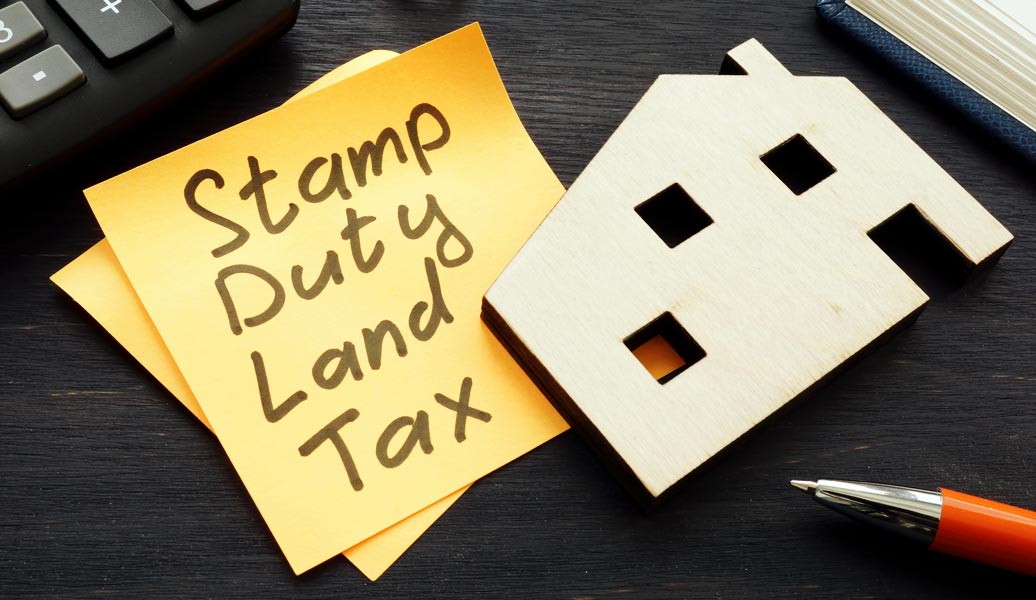If you’re thinking of buying a property, it is crucial to be aware of all the fees involved, as there’s much more to it than the property’s purchase price. One particular cost you’ll need to consider is the stamp duty, which has been a popular topic recently, stirring much confusion in first time home buyers.
It can be dizzying to think about all the other fees you’ll have to pay when buying a property, like the closing costs and the down payment. Throwing stamp duty into the mix can add even more stress to aspiring homeowners. Fortunately, not everyone will have to pay for it, depending on their qualifications. Here’s what you need to know about stamp duty:
What Is Stamp Duty?
Stamp duty land tax or SDLT is a property transaction tax whose amount depends on various factors, like your buying status and the value of the property you’re hoping to purchase. Stamp duty was introduced in 1694 to fund the war against France and wasn’t directly connected to property in those days. Still, it has evolved over the centuries to cover other things, like newspapers and playing cards, until it reached its present iteration.
Due to the pandemic, the government implemented a stamp duty holiday where homeowners could delay paying their stamp duty. However, the holiday has ended, although the reduced rates are still in effect until October 2021.
Who Pays Stamp Duty?
The buyer is always in charge of paying stamp duty, although some may be eligible for exemption. When paying your stamp duty, you’ll need to file your return and make the payment to HMRC within 14 days of completing the property purchase. The good news is that your conveyancing solicitor will handle this for you.
Fortunately, you can roll stamp duty into your mortgage, but it’s essential to assess your situation carefully and determine if it is the wise thing to do. Adding your stamp duty to your mortgage prolongs your loan while increasing the overall amount due to the added interest that will be fastened to it. Additionally, increasing the loan amount to cover your stamp duty may negatively affect your loan-to-value ratio or LTV, which may make you ineligible for better mortgage deals. You’ll ultimately have to pay a higher interest rate for your mortgage.
Who Is Exempted From Paying Stamp Duty?
First-time home buyers may qualify for a stamp duty exemption, but it highly depends on various factors. For instance, homebuyers may benefit from discounted duty rates only on properties that sell for £500,000 or less. If you are a first-time home buyer and you’re purchasing a property priced at £500,001 or above, you’ll have to pay stamp duty.
Second-time home buyers are no longer eligible for first-time buyer relief, which means they’ll be required to pay for stamp duty at the regular rate. Still, other conditions may qualify you from paying stamp duty. Here are the exemptions according to the UK Government:
You do not have to pay SDLT or file a return if:
- no money or other payment changes hands for a land or property transfer
- property is left to you in a will
- property is transferred because of divorce or dissolution of a civil partnership
- you buy a freehold property for less than £40,000
- you buy a new or assigned lease of 7 years or more, as long as the premium is less than £40,000 and the annual rent is less than £1,000
- you buy a new or assigned lease of fewer than seven years, as long as the amount you pay is less than the residential threshold or non-residential threshold of SDLT
- you use alternative property financial arrangements, for example, to comply with Sharia law
Conclusion
Stamp duty can be a source of stress and confusion for first time home buyers. However, with our guide and a cheap conveyancing solicitor, you’ll know everything you need to avoid penalties and enjoy a successful transaction.
Get the best conveyancing quotes and more at Conveyancing Store! Our comparison tool makes conveyancing convenient, which compares conveyancing solicitors quotes for a simple, easy experience. Get a quote today!


